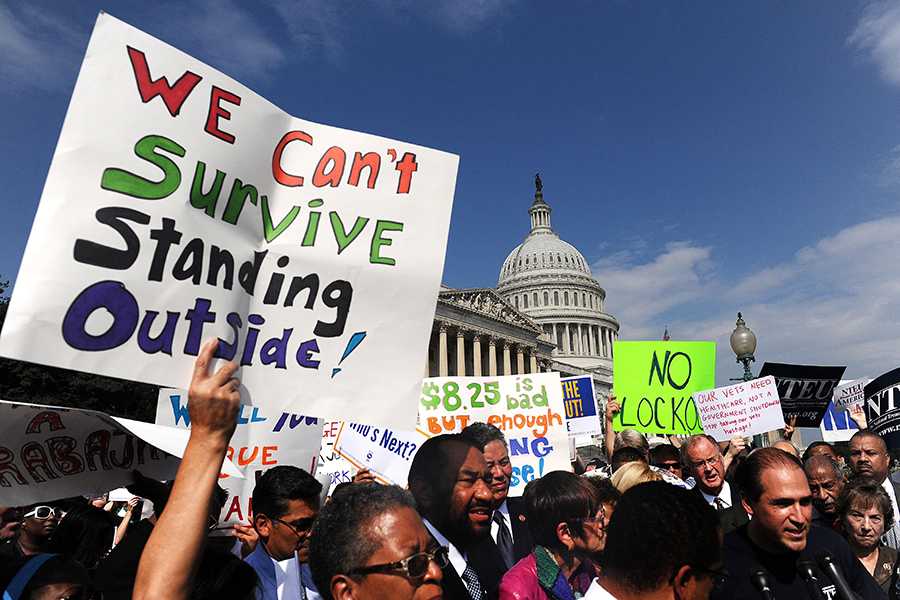Government shutdown hits home hard
1 in 3 Seahawk families affected
200 million dollars.
That is the amount of money that the Washington, D.C. metro area is expected to lose in economic activity each day the government stays shut down, according to The Washington Post.
Now, 10 days into the shutdown, two billion dollars have been removed from the daily economy thus far.
Government gridlock began Oct. 1, the first day of the new fiscal year for the United States. Congress was unable to complete one key duty as outlined by the U.S. Constitution: pass twelve appropriations bills that fund the government.
These spending bills must be agreed on annually by both the House and Senate in order to fund federal agencies. These agencies need funding for the government to function.
However, if Congress cannot agree on how to fund them, they must shut down, as is the case now.
“I think the government shutdown is something that shouldn’t have happened in the first place,” junior Aryan Mahdi said.
The current congressional disagreement is based upon a Republican and Democratic divide concerning the funding of the Affordable Healthcare Act, hence resulting in a stalemate and inability to pass any sort of appropriations bills, leading to a complete government shutdown.
Many federal agencies have simply shut their doors and sent their employees home. Employees not sent home continue to work without pay.
“My family has a lot less money coming in because of the government shutdown,” Mahdi said.
As ordered by the Office of Management and Budget, every federal agency must conduct reviews to determine which of their employees falls into the “essential” and “non-essential” categories. About 800,000 employees were deemed “non-essential,” and sent home without pay, unable to go to work.
As of Oct. 10, the Pentagon has recalled almost all of its 350,000 civilian workers and other government agencies, such as the Social Security Administration, have recalled employees as well.
However, these recalled employees are currently working without pay and with no guarantee that they will ever receive compensation, such as senior Lucie Vleugels’ parents.
“My parents work for the government, and they were both kicked out of work,” Vleugels said. “My mom’s been having mental breakdowns every day because they put her back to work this week, but no one else is working, so she is really frustrated. She also is worried she won’t get reimbursed.”
Although the House unanimously passed a bill on Oct. 5 granting retroactive pay for furloughed workers during the shutdown, it is still up in the air as to whether or not the Senate and White House will approve the legislation.
With one in three families in the D.C. area affected, there is a growing concern that this government shutdown will not result in payment for those furloughed.
“I think that the furloughed employees should be compensated because of how long the shutdown has lasted,” senior Marika Ottman said. “I have friends whose parents have been affected and it is way too long for them to not be going to work.”
Whole families are being affected by the shutdown, including that of history teacher Rebecca Eisenberg, whose husband works for the Department of Defense.
“We rely on my husband’s paycheck for things like student loans and mortgage payments,” Eisenberg said. “Bills don’t stop coming because you stop getting paid.”
In Eisenberg’s third period class of 21 seniors, seven reported being directly affected by the government shutdown.
With nothing to do but wait for the government to restart, some parents are using their spare time to give back to the community, such as freshman Anahita Dhungel’s mother.
“My mom is at home, but my dad is not, even though they both work for the government,” Dhungel said. “My mom is using this time to volunteer, but she misses working.”
As the duration of the shutdown is still unknown, many people are left wondering what they will do to accommodate financially if the shutdown continues.
“Everyone has savings,” Eisenberg said. “But you don’t know how long this will go on and how long you’re going to have to dip into your savings.”













